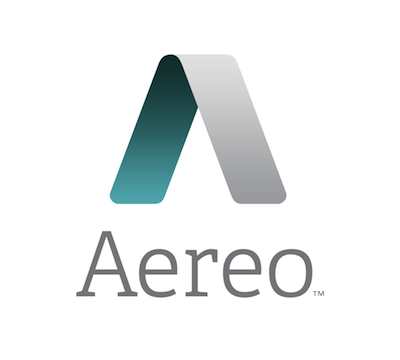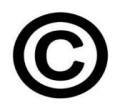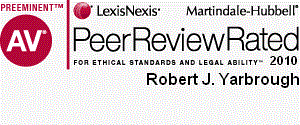Newsletter Issue 46 - December 2012
In this issue:
Who pays for patent infringement litigation?
Rights to over-the-air television
First sale doctrine
Who pays for patent litigation?
Your company is threatened with a lawsuit for patent infringement. You are confident that your product does not infringe. Should you fight or should you surrender?
These are very real questions that businesses face every day. According to a 2009 survey by the American Intellectual Property Law Association, the average cost for infringement litigation through the end of discovery was $2.5 million where the amount in controversy was between $1 million and $25 million. These costs do not include the costs of the trial or of any appeals.
In short, your attorneys’ fees may well hit seven figures. Whether you can collect those fees may well determine whether it makes sense for you to fight or to cave. So can you collect your attorneys’ fees from the patent owner when you win the infringement lawsuit?
In the U.S., the answer generally is ‘no.’ The patent statute tracks the ‘American Rule’ and allows the prevailing party to collect its attorney’s fees only in ‘exceptional circumstances.’ The Federal Circuit has generally held that ‘exceptional circumstances’ occur and an accused infringer is entitled to an award of its attorney’s fees where the litigation is frivolous or the patent owner committed misconduct in obtaining the patent or in the litigation. The Federal Circuit also has held that ‘exceptional circumstances’ occur when the litigation is both (a) brought in subjective bad faith and (b) objectively baseless.
The law elsewhere is different. The ‘British Rule’ allows the prevailing party routinely to collect its attorneys’ fees.
O Say, Can You See?
Imagine that you live in an apartment in a large city, and that you don’t want to have cable television. You used to have “rabbit ears” on your television, but once the analog transmitters went off the air, you found that your apartment faces the wrong way, and now all you get on your set is frozen, torn images and a buzzing sound. You could try to hoist your own antenna to the roof to get a clear signal, but a new company called AereoTV offers you a better way. For a small charge (about $7/mo. including DVR functions) Aereo will rent you two Internet-connected antennas on their building that you can use to receive over-the-air broadcasts from local stations to be viewed on your computer, iPad, AppleTV, Roku, or any other system. Sounds great, right?
Well, ABC, Fox, Univision, Disney, CBS, NBC, PBS (PBS!!!) and other companies sued Aereo for copyright infringement, claiming that they are owed license fees. They all asked for an injunction to shut down Aereo until there’s a trial, but the court refused that demand. The media companies appealed to the Second Circuit (Appeal 12-2786-cv.) Now the Electronic Frontier Foundation, Public Knowledge and the Consumer Electronics Association have filed “friend of the court” briefs siding with Aereo, and asking the court to protect consumers’ rights.
The crux of the argument in this case boils down to a fundamental shift in copyright law over the past twenty years. Media companies have argued, both in court and in Congress, their view that if a creative work has economic value, then there must be a legal right to control that value. This “if value, then right” approach goes against the history and rationale of our copyright law, which was created by the drafters of the Constitution to “promote the progress of science and the useful arts.” Our copyright law creates legal rights to encourage the creation of works of art, literature, film, software, and many other types of what we copyright attorneys call “works”.
In a careful balance between the right of the public and those of the creator, Congress determined that copyright holders may control public performances (and viewing a television program is called a performance, for these purposes) but not private ones. That is why the owner of a sports bar must be licensed to show the same football game that you’re allowed to watch at home, for free, even if you invite 50 of your closest friends to watch with you, and serve them the same beer that they buy at the bar. In the Aereo case, the media companies are trying to control what they broadcast after it is received. That is why the EFF and other amici have jumped in to defend Aereo – they are defending the public’s right to private viewing.
The brief filed by the EFF asks the court to compare the following ways of viewing a television program:
* Watching broadcast TV from the living room with a ‘rabbit ears’
antenna;
* Watching broadcast TV from the living room with a roof-mounted
antenna;
* Watching broadcast TV on a bus using a handheld TV receiver;
* Watching broadcast TV received by a roof-mounted antenna at the
customer’s home, which is then sent over the Internet or a home
network from a device in the home to a handheld device.
* Adding a time-shift to any of these activities by recording and
playing back a personal copy of a TV program.
* Adding pause, slow-motion, and rewind capabilities to otherwise
“real-time” TV viewing through use of a recording.
Each of these is a lawful way to watch television, and the only differences are in the length and type of wire between the antenna and the display (using the Internet as a wire, in the case of a device like a Slingbox or EyeTV.)
Right now, Aereo only operates in New York City. Provided that this startup company is not crushed by the media giants, and provided that Congress does not change the copyright law to make Aereo’s business illegal (don’t count on it – after all, Disney bought extra copyright years for Mickey Mouse with its influence over the late Sonny Bono when he was a Representative) you may some day be able to watch local television stations anywhere in the world by renting an antenna in a far-away city.
First Sale Doctrine Goes Digital — or Does It?
Here’s another example of the “if value, then right” approach. You may recall that the first sale doctrine permits an owner of a copyrighted work to sell, transfer, loan, or even dispose of the work without infringing the creator’s distribution rights. So, for example, if you were to purchase a music CD or a book, you have the right to resell or transfer it without infringing on the artist’s copyright in the work itself. It is important to remember that the first sale doctrine is solely an exception to the right of distribution. It does not place any limitations on the right to copy a work. One who acquires a work, even by resale, does not have the right to copy it.Technological changes are stressing long held assumptions about the first sale doctrine. A recent case filed in federal court in New York City by Capitol Records (“Capitol”) against ReDigi Inc. (“ReDigi”) is testing the limits of the doctrine. The case has profound economic ramifications not only for the resale of digital works but also for cloud computing.
ReDigi is an online music reseller, which provides a market place for owners of digital media to resell their mp3′s and other digital files. Capitol sued ReDigi for copyright infringement demanding injunctive relief and statutory damages. ReDigi, of course, claims that it is not infringing copyright but is simply reselling works as permitted by the first sale doctrine. To sell a work on ReDigi’s web site requires a user to upload music files to the ReDigi server. ReDigi claims that its software verifies the legitimacy of the uploaded file and when sold to a buyer, it transfers the file without copying. Capitol, on the other hand, asserts that digital files are not like physical objects. Moving digital files requires the act of copying and there is simply no way to verify that the owner of the work has deleted the original purchased files. The court has yet to decide the case although it denied — without opinion — Capitol’s motion for preliminary injunction.
The ReDigi case has implications that go beyond the viability of the first sale doctrine. Cloud computing companies such as Google and Amazon have a huge stake in the court’s decision. Google and Amazon store millions of files belonging to others on their servers. The right to hold those files and to transfer them depend upon an untested assumption that transferring digital files by service providers represents an exception to principles of copyright law that prohibit unauthorized copying.
The European High Court has already made a ruling on a similar issue
involving used software licenses. It has held that software vendors
such as Oracle have no right to block resale of “used” software
licenses by companies such as UsedSoft. The U.S. version of this
case will be an interesting one to watch.

